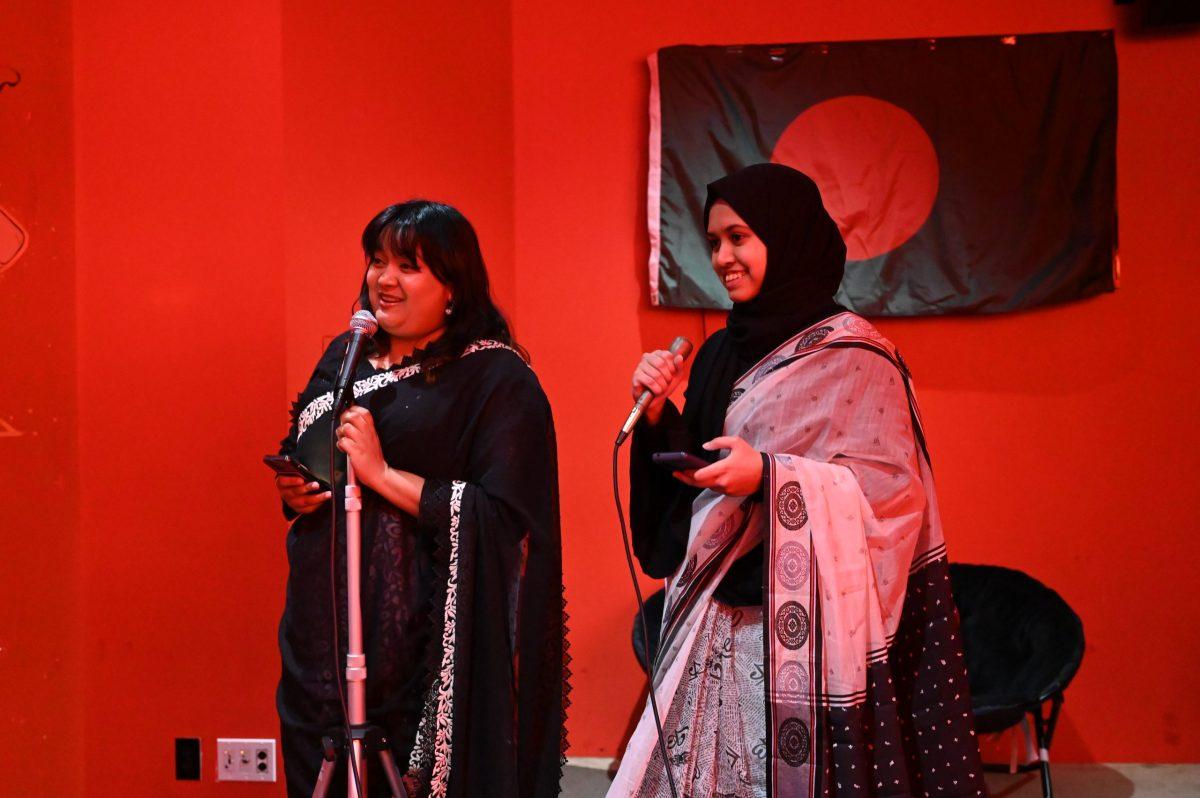On Feb. 19, the Bangladeshi Students Association at Wellesley organized their annual International Mother Languages Day Coffeehouse event. The coffeehouse is one of BSA’s largest events of the year and sees participation from a large number of students and groups on campus, each showcasing an act in their respective mother language.
Following 2020, this year’s Coffeehouse was the first to be held at Punch’s Alley. In previous years, BSA has held the Coffeehouse at locations such as El Table, Tishman Commons and Punch’s Alley among others. This year, the event was hosted in collaboration with Cafe Hoop. Historically, BSA has frequently collaborated with cultural organizations both on and off campus. In particular, BSA makes a conscious effort to support student-run cooperatives on the Wellesley campus — most of whom include students from the BSA community.
Every year, the event is organized in honor of International Mother Language Day which is celebrated on Feb. 21 following its recognition by the United Nations Educational, Scientific and Cultural Organization (UNESCO) in 1999. It is also to recognize the Bengali Language Movement which began in 1948 in erstwhile East Pakistan (present-day Bangladesh). Reflecting on the inspiration behind the event, BSA Co-President Tazrean Hossain ’24 explained why the Bengali Language Movement is significant not just for the Bengali community but for all those who have historically been the subject of colonialist policies that suppressed their right to speak their own language.
“For us, it’s a day that honors our martyrs and the people who were brutally murdered for protesting to speak the Bengali language because this was back when Bangladesh was still a part of Pakistan and Pakistan was trying to enforce an Urdu speaking nation,” Hossain explained.
Hossain further commented on the importance of celebrating one’s language and the role played by an open mic in fostering an inclusive atmosphere that enables individuals to do just that.
“Part of the reason [we host Coffeehouse] is because we really want to celebrate the linguistic and cultural diversity at Wellesley. And what’s happened to us as Bengali people,” Hossain said. “It’s something that applies to everyone because everyone has a mother tongue. Everyone has a relationship to language. We want to celebrate that and invite the whole community to do so. Having it as an open mic event … makes it more inclusive and welcoming,” Hossain added.
The BSA executive board began planning for the highly anticipated event back in December of 2023. Speaking of the efforts that went into organizing the event, Co-President Samihath Zaman ’25 shed light on the organization’s collective efforts to bring together student performers while coordinating other essential logistics.
“We started reaching out to performers at the beginning of the semester,” Zaman said. “The part that was challenging was that we usually don’t require security but following some recent changes in rules, we had to navigate having security [at the pub].”
The event began with a poem that illuminated the significance of the Bengali Language Movement. As the event progressed, performances varied in their presentational format, ranging from poem recitations to musical duets. The performances also spanned a wide range of languages including but not limited to Bengali, Spanish, Korean, Fijian, Serbian and Chinese.
While each performance conveyed a unique message, what was common to them all was their ability to unearth lost histories and celebrate the beauty lying within all languages. Many of the performances focused on themes such as the struggle of the Bengali people to speak the Bengali language in erstwhile East Pakistan. As an extension of these underlying themes, the event saw performances that emphasized the collective struggles of communities across the globe whose languages were historically suppressed as a result of colonialist practices. Hossain commented on how the struggle for liberation unintentionally became an underlying theme at the event and its connection to today’s global context.
“[While] it wasn’t intentional, it makes sense that one of the things that came up in all the performances is that right now, we’re all fighting for liberation and its connection to the struggles that we’re seeing right now in Palestine,” Hossain said. “I think a lot of people are feeling really frustrated about what’s happening in the world right now and it’s clear how that’s affected all of us. And so, while that wasn’t intentional, I’m really glad that that was a theme.”
Towards the closing of the event, attendees witnessed a cover of two Bengali songs performed by Co-Presidents Zaman and Hossain. Following this, the floor was opened to audience members who were invited to perform a piece of their liking which saw large participation. Following the event’s conclusion, attendees were directed to Cafe Hoop after providing them with Hoop tabs as an incentive to support the student-run co-op.
Looking back at her last Coffeehouse event as BSA Co-President, Hossain, who is set to graduate this summer, commented on what she hopes for future BSA Coffeehouse events and how she would like to see the tradition being kept alive.
“I really like how [Coffeehouse] is organized. I like that it’s an intimate space and that it’s cozy and wholesome. [In the future] I want this to be an event that we have more attendance at but I don’t want the size of the event to make it lose that energy,” Hossain said. “I want the space to remain the way it is now and I have full faith that it’s going to continue to be an amazing event in future years.”




